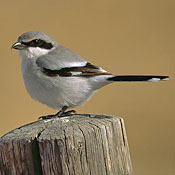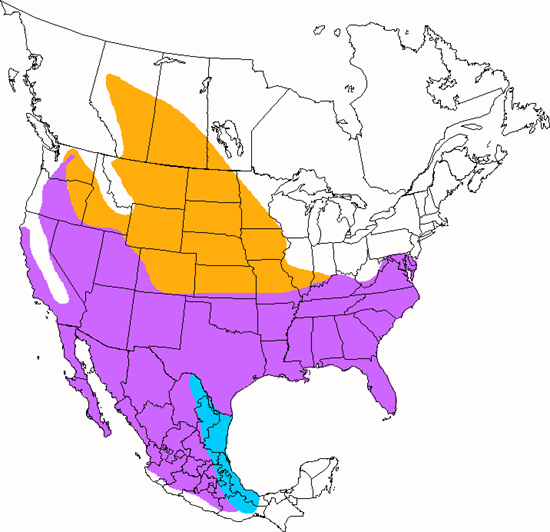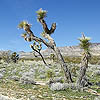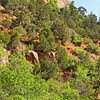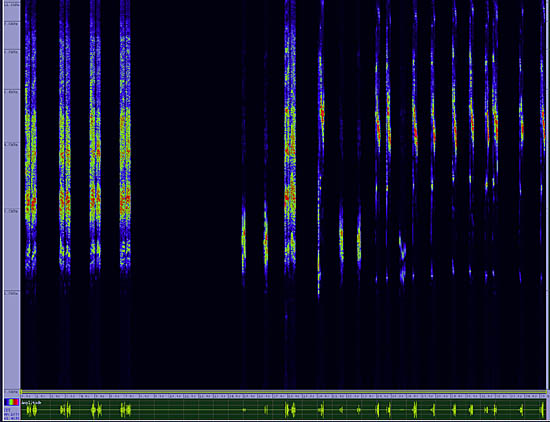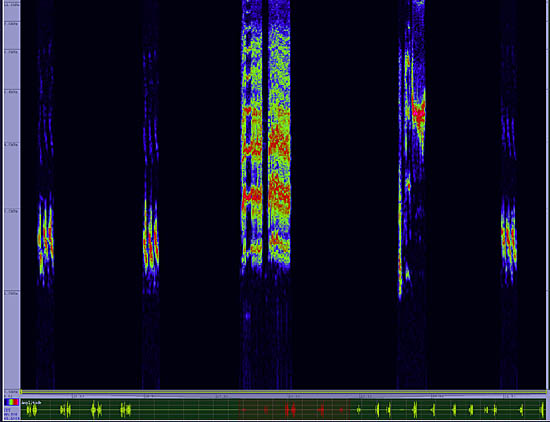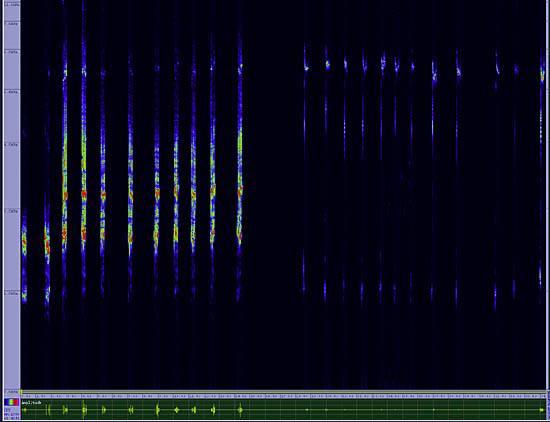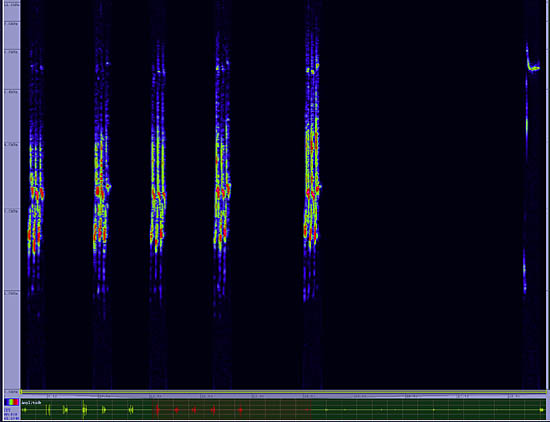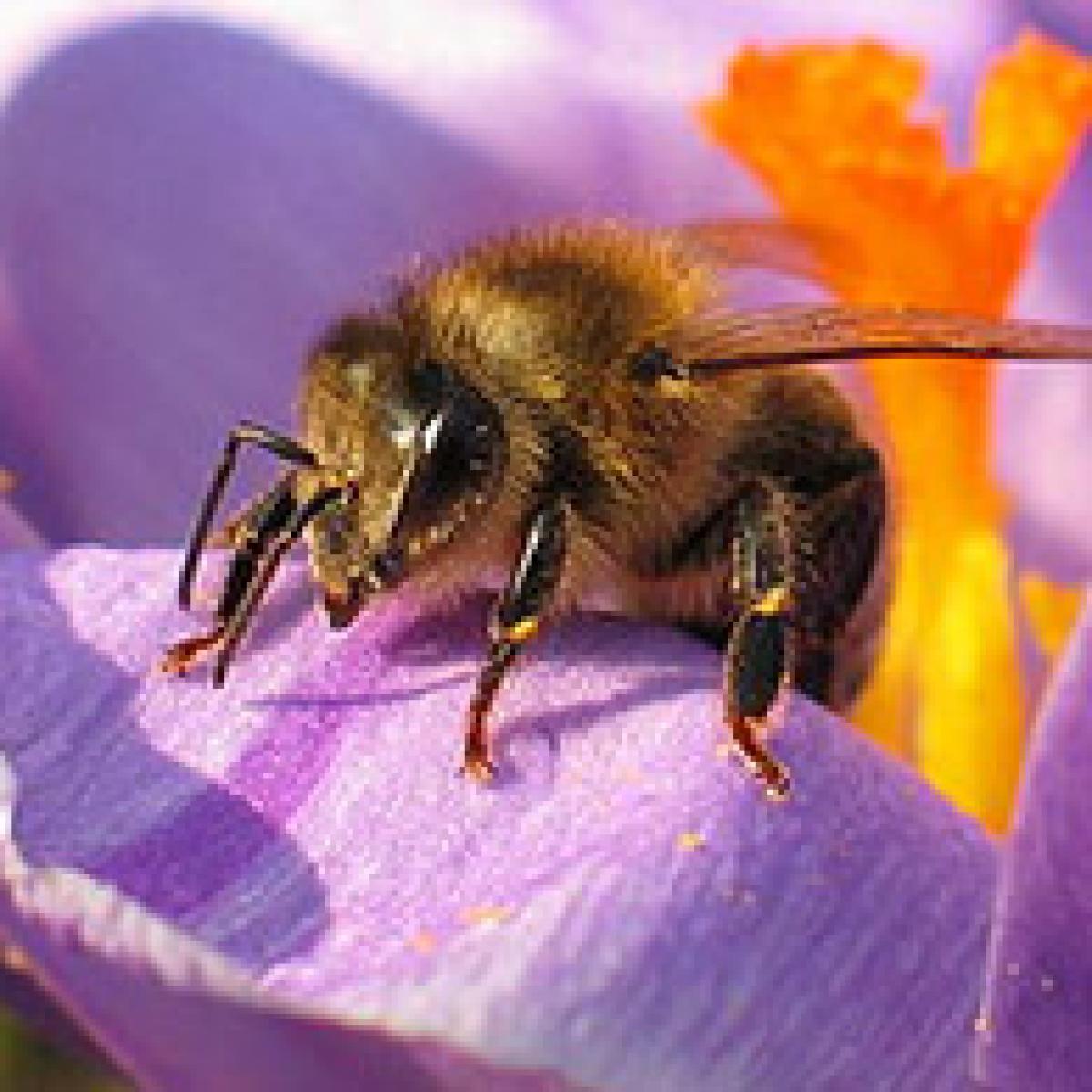Loggerhead Shrike
Lanius ludovicianus

Perching
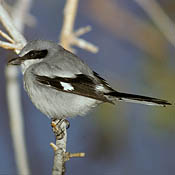
Length: 9 in. (23 cm )
Obvious as it perches high in the top of a tree, bush, or telephone wire in open country, the Loggerhead Shrike is constantly looking for prey, such as large insects, mice, lizards and occasionally small birds. When prey is sighted running on the ground, the shrike swoops down and dispatches it with its hooked bill. In times of prey abundance, the shrike will impale extra food items on spines of bushes or on sharp points of barbed wire, sometime accumulating many dead carcasses all hanging as in a butcher shop. This behavior is the origin of the other common name of the shrike, the butcher bird. Its bulky nest is woven of twigs and hair and hidden in a dense patch of shrubbery or small tree.
The four-digit banding code is LOSH.
Bibliographic details:
- Article: Loggerhead Shrike
- Author(s): Dr. Biology
- Publisher: Arizona State University School of Life Sciences Ask A Biologist
- Site name: ASU - Ask A Biologist
- Date published: 13 Jul, 2017
- Date accessed:
- Link: https://askabiologist.asu.edu/activities/bird/loggerhead-shrike
APA Style
Dr. Biology. (Thu, 07/13/2017 - 15:37). Loggerhead Shrike. ASU - Ask A Biologist. Retrieved from https://askabiologist.asu.edu/activities/bird/loggerhead-shrike
Chicago Manual of Style
Dr. Biology. "Loggerhead Shrike". ASU - Ask A Biologist. 13 Jul 2017. https://askabiologist.asu.edu/activities/bird/loggerhead-shrike
Dr. Biology. "Loggerhead Shrike". ASU - Ask A Biologist. 13 Jul 2017. ASU - Ask A Biologist, Web. https://askabiologist.asu.edu/activities/bird/loggerhead-shrike
MLA 2017 Style
Be Part of
Ask A Biologist
By volunteering, or simply sending us feedback on the site. Scientists, teachers, writers, illustrators, and translators are all important to the program. If you are interested in helping with the website we have a Volunteers page to get the process started.

